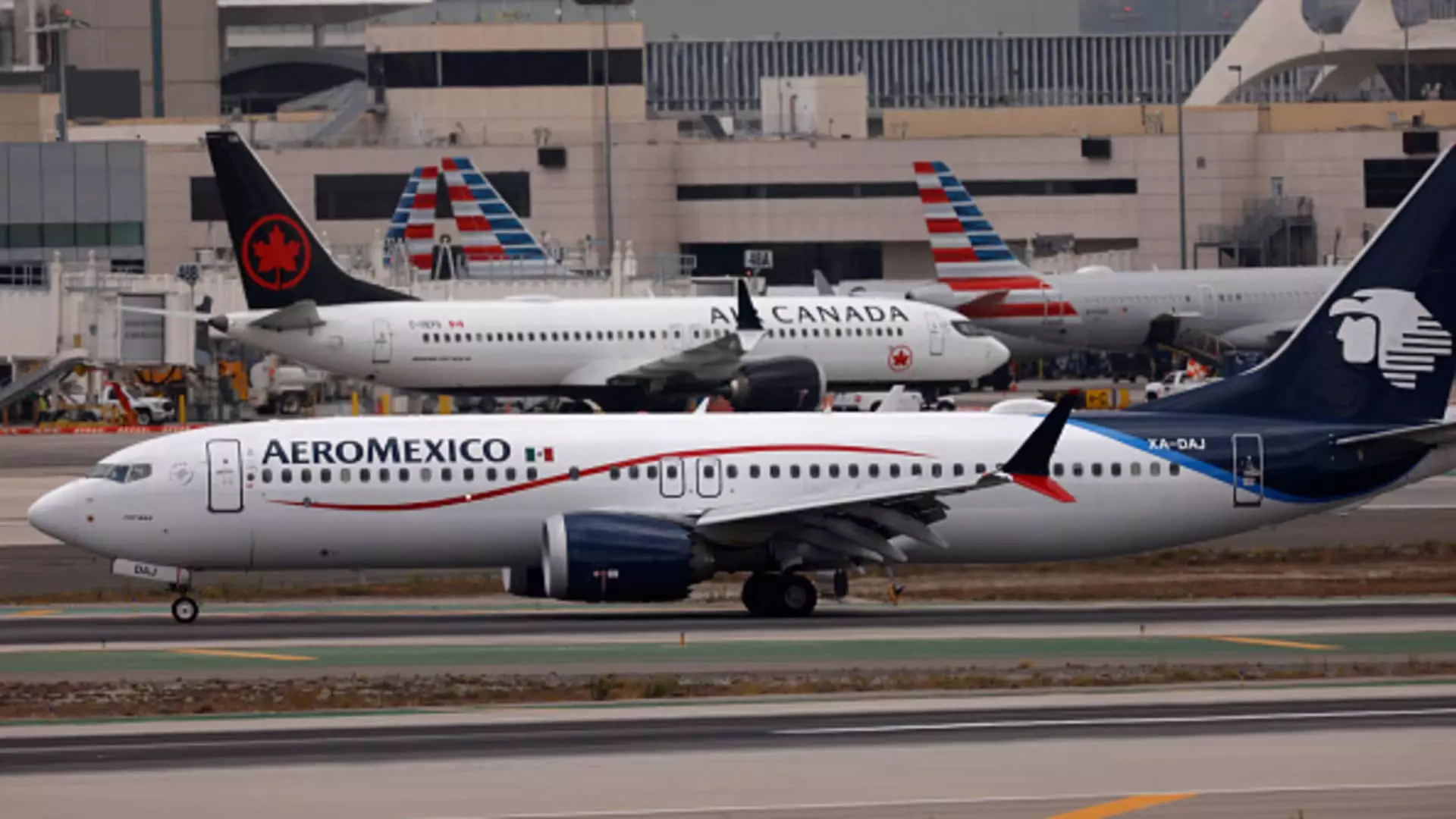The recent decision by the Biden administration to order Delta Air Lines and Aeromexico to dissolve their nearly decade-old joint venture epitomizes a critical stance on corporate alliances that ostensibly distort market fairness. While the Transportation Department justifies this move by citing ongoing anticompetitive effects, it also raises questions about the true motivations behind such intervention. This action signifies a broader attempt to clamp down on perceived monopolistic behavior, but it risks underestimating the nuanced role that strategic collaborations can play in enhancing consumer options and boosting economic activity.
The core argument hinges on the claim that the joint venture unfairly advantages these two airlines in the U.S.-Mexico market, leading to reduced competition and potential harm to consumers. However, it is worth probing whether the government’s approach truly balances consumer interests with protecting market integrity or if it merely reflects a protectionist impulse rooted in larger geopolitical tensions, especially amid complex U.S.-Mexico relations.
The Economic and Social Ramifications
Apart from the legal and regulatory frameworks, the economic implications of dissolving this alliance are profound. Delta and Aeromexico argue that their partnership supports approximately $310 million in annual contributions to the U.S. economy—an assertion that cannot be dismissed lightly. A sudden cessation could jeopardize jobs, regional connectivity, and the viability of routes that facilitate cross-border trade and tourism.
Moreover, the partnerships extend beyond mere schedule coordination to include customer-centric benefits such as frequent flyer program reciprocity. Stripping away these integrations might inconvenience travelers, decrease loyalty options, and ultimately lead to higher prices as market competition diminishes. Conversely, critics might contend that such collaborations entrench corporate power and stifle emerging competitors from challenging the duopoly established by these giants.
The Larger Picture: Competition, Politics, and Economics
This dispute is emblematic of a deeper, more intricate debate about the balance between fostering competition and allowing strategic alliances to flourish. The Biden administration’s hesitation to endorse the joint venture since 2016 hints at underlying concerns about market dominance. But the unilateral move to dismantle the partnership reveals a view that monopolistic practices must be curbed at all costs, even if it means sacrificing economic benefits.
Critically, this case underscores the tension between regulation and free enterprise. While safeguarding consumers from unfair practices is essential, overreach can stifle innovation and reduce the very benefits that well-structured collaborations can bring. Moving forward, policymakers need to carefully consider whether the immediate benefits of increased competition outweigh potential long-term gains in market efficiency and consumer convenience.
The decision to end the Delta-Aeromexico joint venture is a stark reminder that corporate alliances in the aviation industry are not merely business strategies—they are political instruments shaped by regulatory, economic, and diplomatic factors. As the industry navigates this turbulent landscape, it is vital to scrutinize whether such interventions truly serve the public interest or if they inadvertently hamper economic growth and consumer welfare. This situation calls for a nuanced approach—one that balances fairness with pragmatism—if we aim to forge a healthier, more competitive airline industry in North America.


Leave a Reply